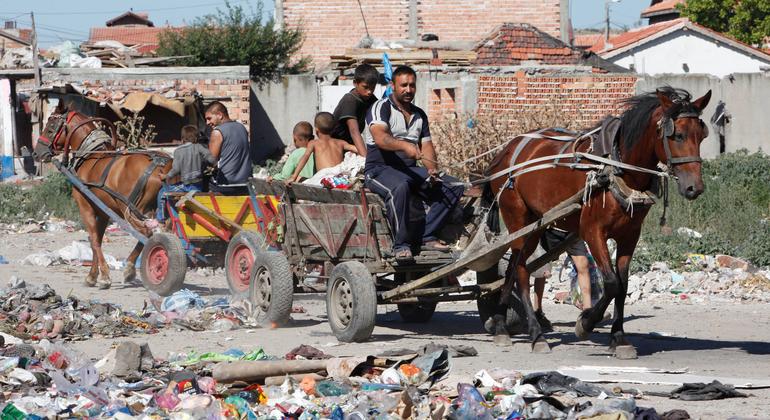UN Secretary-General: Fight bigotry whenever and wherever it appears


On the night of 2 August 1944, the last 4,300 Roma and Sinti in the Auschwitz-Birkenau concentration camp were murdered by Nazi forces, despite their fierce resistance. This marked the killing of more than 500,000 members of the community, at least a quarter of their total population at the time.
The Nazi genocide also claimed the lives of six million Jews and targeted LGBTIQ+ people, people with disabilities, dissidents and other minorities.
Prejudice persists to this day
In one message Marking European Holocaust Remembrance Day for Roma and Sinti People, United Nations Secretary-General António Guterres also honored the survivors and praised their brave resistance.
However, he warned that the prejudice that fueled Nazi atrocities did not end after their fall.
“That still remains today. The sad reality is that Roma people face widespread discrimination in all areas of life and everywhere in the world, especially in Europe,” he said.
“Extremist and xenophobic groups are spreading hate speech, blaming minority communities and sowing fear and division.”
Stand together
Mr. Guterres called on people around the world to unite and fight against bigotry in all its forms.
“We must unite… to protect and promote the human rights of Roma people and build a world where everyone lives in dignity, peace and freedom,” he added, reaffirming the United Nations’ commitment to be “a firm ally in that cause.”
Learning from history
In one private messageVolker Türk, the UN High Commissioner for Human Rights, has warned of the “unimaginable horrors” that can arise from hatred and inhumanity.
“We must remember the lessons of history,” he told attendees of the Passing on Memory to the Future conference on Holocaust Remembrance and Education in Kraków, Poland, via video.
“Discrimination, exclusion, marginalization. This has been around for centuries, but it persists today in a context of escalating hate speech against minorities in general, including on social media and by some populist leaders.”
Mr. Türk shared personal memories of the aftermath of anti-Ryganism in the immediate aftermath of the Kosovo conflict, where he was involved in the establishment of a human rights monitoring initiative to address the discrimination and violence faced by the Roma, Egyptian and Ashkali communities.
Do more
He added that Roma people in Europe continue to face serious hardship, as revealed in a 2021 European Union human rights survey. The survey found that 17 percent had suffered some form of hate-based harassment in the past 12 months and nearly 80 percent were at risk of falling into poverty.
The UN human rights chief welcomed some positive steps, noting Sweden’s efforts to commemorate publicly and Germany’s appointment of a federal commissioner for combating Romaism.
“However, much remains to be done to ensure that all these communities have access to education, employment, housing, health, public services and many other rights,” he urged.




